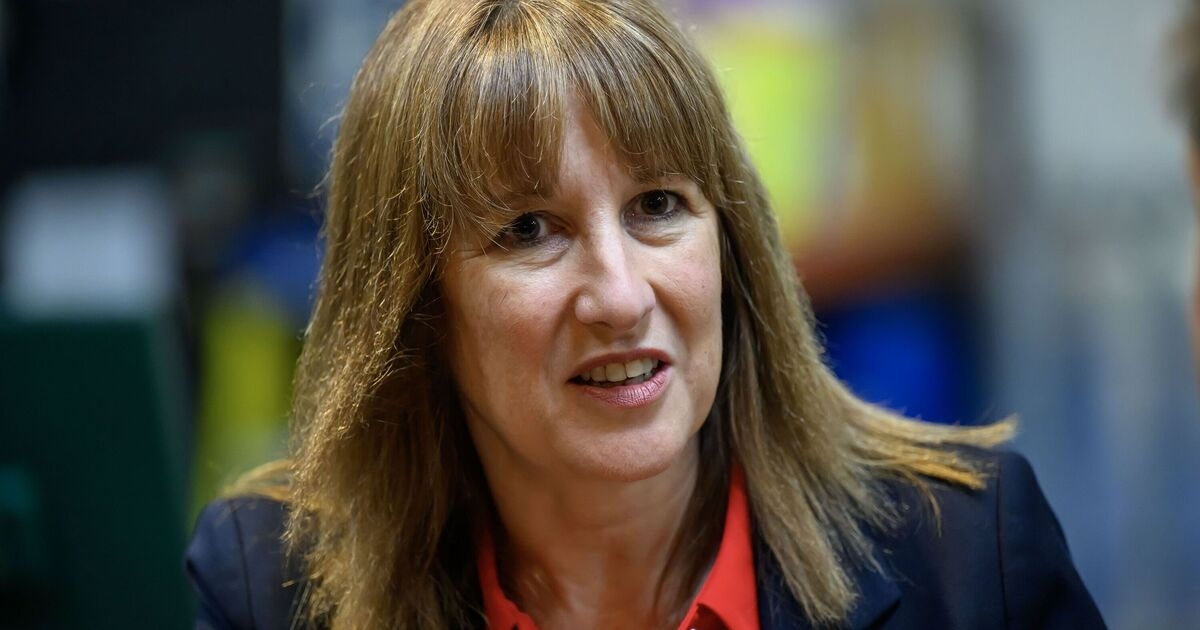Rachel Reeves told to issue 'wealth tax'

Rachel Reeves is under growing pressure to find new sources of revenue including a one-off “windfall” tax on existing wealth and sweeping reforms to property taxes.
The Institute for Fiscal Studies (IFS) said a single, temporary levy on accumulated assets would be less damaging than an annual wealth tax repeatedly called for by some Labour MPs.
It has also urged the Chancellor to overhaul council tax, stamp duty and a host of other areas of the tax system that have not been updated in decades.
Isaac Delestre of the IFS said: “Almost any package of tax rises is likely to weigh on growth, but by tackling some of the inefficiency and unfairness in our existing tax system, the chancellor could limit the economic damage.
"The last thing we need in November is directionless tinkering and half-baked fixes.”

While Reeves has vowed not to raise income tax, VAT or National Insurance, the IFS set out a raft of alternative options - some of which would hit better-off households, while others would spread the burden more widely.
The IFS list of revenue-raising ideas includes:
• A one-off wealth (windfall) tax:
The think-tank argues that a single levy on existing wealth would be fairer and more efficient than an annual wealth tax. It says a one-time charge on assets could raise several billion pounds if carefully designed, without driving investors or savers abroad.
• Overhauling council tax and stamp duty:
The IFS calls the current council tax system “outdated and regressive”, since it is still based on 1991 property values. Rebanding or creating a “mansion tax” for high-value homes could raise around £3½ billion, while updating stamp duty thresholds could improve fairness and yield extra revenue.
• National Insurance on employer pension contributions:
Currently, employers do not pay National Insurance on the money they contribute to staff pensions. Applying NICs to these payments - or partly doing so - could bring in around £6 billion a year, according to IFS calculations.
• Reducing pension tax reliefs:
Tax reliefs on pension contributions overwhelmingly benefit higher earners. The IFS suggests capping relief at the basic rate of 20% - a change that could raise as much as £22 billion by 2029–30, although it could discourage saving.
• Inheritance tax reforms:
Options include raising inheritance tax rates, cutting exemptions and scrapping reliefs on pension, business and agricultural wealth. The IFS notes that abolishing the “residence nil-rate band” - which allows parents to pass on an extra £175,000 tax-free if they leave a home to their children - could raise around £6 billion.
• Curtailing capital gains tax (CGT) reliefs:
At present, gains on assets are wiped out on death. Ending this rule, or aligning CGT rates more closely with income tax, could generate an extra £2–3 billion a year.
• Increasing fuel duty:
Fuel duty has been frozen for more than a decade. The IFS says simply restoring annual inflation rises could raise several billion pounds over time, though it would hit motorists hard.
• Higher bank levy or surcharge:
The Treasury could increase the special taxes already imposed on financial institutions. A one-percentage-point rise in the bank surcharge could yield about £400 million a year, the IFS estimates.
• Cracking down on tax avoidance and under-collection:
Improving enforcement and closing loopholes in corporation tax could bring in up to £10 billion, according to the IFS.
• Introducing a new earmarked levy:
The Chancellor could design a fresh, targeted tax - for example, a “social care levy” - without technically breaking Labour’s manifesto promises. A 1% charge of this kind could raise around £15 billion.
Reeves’ dilemma
The IFS warns that the Chancellor must strike a careful balance between raising revenue and maintaining economic growth.
It said an annual wealth tax would be complex and economically damaging, while slashing pension reliefs could undermine long-term saving.
A one-off wealth levy, by contrast, could deliver a short-term cash boost without distorting behaviour - though it would be politically controversial and difficult to administer.
Reeves, who faces a £20–£30 billion budget gap, has pledged “stability and responsibility” in public finances, while the Treasury has said it will not comment on Budget measures speculation.
Daily Express





